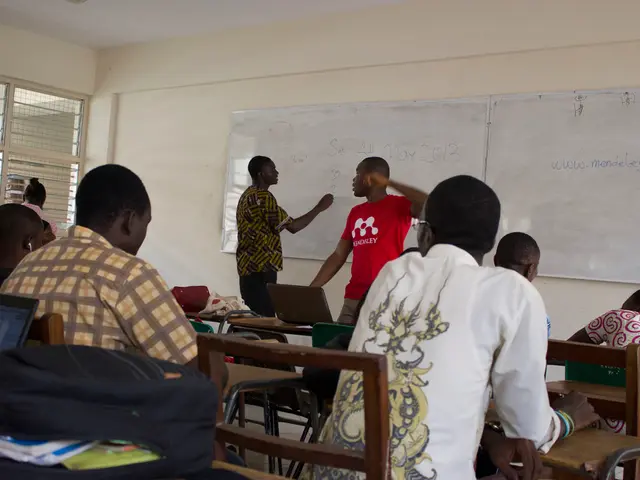Increase in Young Midwives Since Degree Program Introduction in Baden-Württemberg
Increase observed in the count of young midwives post the commencement of the study. - Boost in midwives among younger age group observed from study's onset
The introduction of university-based midwife training nationwide has led to an increase in the number of new midwives, particularly in Baden-Württemberg. According to a spokesperson for the Ministry of Science, 214 midwives graduated as the first cohort since the academization of the training in Baden-Württemberg, compared to 182 graduates from school-based training in 2023.
The demand for midwifery degree programs is high, with almost all of the 260 study places offered annually filled. However, not all students complete their studies within the regular time frame, and some drop out, resulting in a lower number of graduates.
Currently, there are no plans to increase the number of study places, as the Ministry of Social Affairs believes the number of newly licensed midwives is sufficient. This is due in part to graduates from the school-based training as well. The Ministry will monitor the number of new licenses as the school-based training is phased out.
With the abolishment of the classic training, a university degree is now the only pathway to becoming a midwife. The dual degree program in midwifery has replaced the traditional training. Although the first students in Baden-Württemberg began in 2021, it was possible until the end of 2022 to commence and complete the training in school. Legally, it is still possible to complete the training until 2027 if necessary.
Minister of Science Petra Olschowski (Greens) notes that the degree ensures scientifically sound care for pregnant women and families, and strengthens research in a central area of healthcare. The degree offers diverse professional and academic opportunities for graduates, who can work in both clinical and self-employed practice. Moreover, paths are open to them in research, for a doctorate, and habilitation.
The Baden-Württemberg Midwives' Association welcomes the switch from traditional training to a degree program, citing the program's high quality and the benefits of its dual design. However, it remains uncertain how much the total number of midwives in the state will increase with the higher number of new entrants. The Ministry of Social Affairs indicates that factors like the length of time midwives remain in the profession, the number that stay in the academic field, and migration from other federal states or immigration from abroad also play crucial roles in the supply situation.
factors affecting midwives' supply:- Education and training: Availability and quality of midwifery education can impact the number of new midwives entering the profession.- Work-life balance and burnout: Support systems for managing stress and promoting work-life balance could influence whether young professionals stay in the field.- Economic factors: Favorable compensation, benefits, and job security can attract and retain young professionals.- Healthcare policies and support: Policies that support midwives, such as flexible working hours and recognition of their role, can encourage more young individuals to pursue and remain in the profession.- Demographic and societal needs: Regions with growing populations or specific healthcare needs may see an increase in the demand for midwives.
- In light of the increase in young midwives since the degree program introduction in Baden-Württemberg, there could be opportunities for advancement in science and health-and-wellness sectors, as these graduates may contribute to research and healthcare with their diverse professional and academic opportunities.
- Alongside the academization of midwife training, students might find value in online education and learning resources while pursuing their university degree, as these platforms can offer flexible and comprehensive knowledge for vocational training and education-and-self-development.
- Encouraging scientifically sound care for pregnant women and families, the degree program in Baden-Württemberg drives vocational training in midwifery while opening doors for further learning, such as pursuing a doctorate or habilitation in the field of health-and-wellness.








